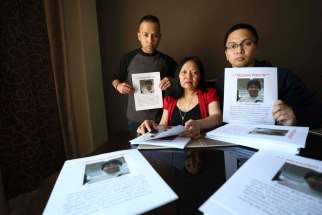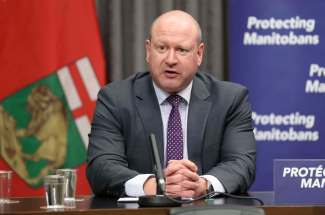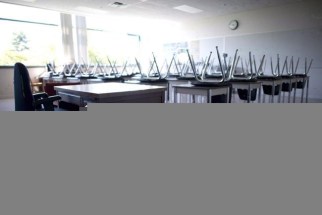Education reforms face failure without diversity commitment: advocates
Read this article for free:
or
Already have an account? Log in here »
To continue reading, please subscribe:
Monthly Digital Subscription
$0 for the first 4 weeks*
- Enjoy unlimited reading on winnipegfreepress.com
- Read the E-Edition, our digital replica newspaper
- Access News Break, our award-winning app
- Play interactive puzzles
*No charge for 4 weeks then price increases to the regular rate of $19.00 plus GST every four weeks. Offer available to new and qualified returning subscribers only. Cancel any time.
Monthly Digital Subscription
$4.75/week*
- Enjoy unlimited reading on winnipegfreepress.com
- Read the E-Edition, our digital replica newspaper
- Access News Break, our award-winning app
- Play interactive puzzles
*Billed as $19 plus GST every four weeks. Cancel any time.
To continue reading, please subscribe:
Add Free Press access to your Brandon Sun subscription for only an additional
$1 for the first 4 weeks*
*Your next subscription payment will increase by $1.00 and you will be charged $16.99 plus GST for four weeks. After four weeks, your payment will increase to $23.99 plus GST every four weeks.
Read unlimited articles for free today:
or
Already have an account? Log in here »
Hey there, time traveller!
This article was published 29/03/2021 (1716 days ago), so information in it may no longer be current.
Educators and community advocates are concerned the provincial government’s education reforms will reinforce systemic racism in the public school system and further marginalize visible minority voices.
The Education Modernization Act (Bill 64) states a board of appointees that will make policy decisions instead of elected trustees will represent “the diversity of the people of Manitoba and the varied talents, perspectives and ideas of people with different backgrounds and experiences.”
There are no specifics that address regional, cultural, gender or BIPOC (Black, Indigenous and people of colour) perspectives.
Kathleen Vyrauen, co-chairperson of the Newcomer Education Coalition, said she’s unconvinced of the vague language in the legislation.
“At the end of the day, if they’re going to be making decisions for those students, they have to reflect those students. If they don’t do that, you’re going to have so many students fall through the cracks,” said Vyrauen.
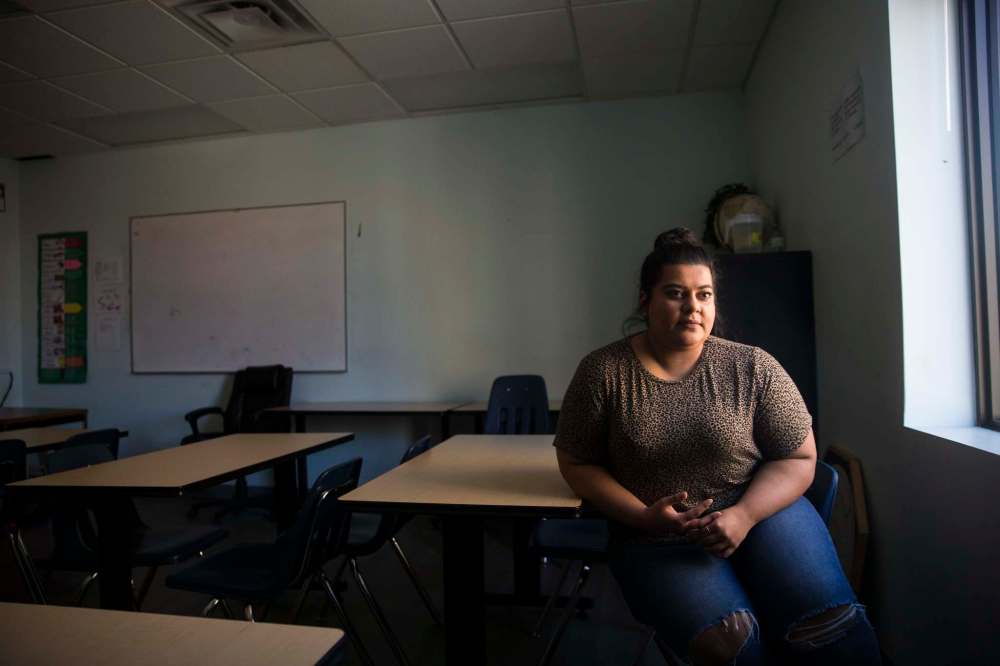
Calling representation vital to make marginalized communities feel safe and supported as active members in the school system, Vyrauen said Manitoba should look to Nova Scotia: when the Eastern province dismantled boards in favour of a centralized set-up that mirrors Manitoba’s plans back in 2018, it reserved seats for underrepresented communities at the table.
Nova Scotia’s 15-member advisory council must include elected representatives from the Mi’kmaq, African-Nova Scotian and Acadian communities.
The remaining positions, one of which is for a representative with experience in inclusive education, are to be selected, after considering everything from regional, cultural and gender representation to the “equitable representation” of community interests in appointments.
In Manitoba, reforms prioritize parents: a parent elected from each of the 15 new regional entities, as well as a francophone trustee, will make up an advisory council that has the minister’s ear. Decision-making power will be concentrated in a board of no more than 11 appointees, including at least two parents from the advisory council.
“Since we’ve just come through this Black Lives Matter movement, it’s so important to recognize that we are in an age of racial reckoning like no other,” said Rebecca Chartrand, an long-time Indigenous education consultant and mother in Winnipeg, who recently took over the role of vice-president of programs and student success at Indspire.
Chartrand said she’s concerned a top-down system will focus on managing rather than leading by philosophies on best practices in education, including championing diversity, inclusion and equity.
“Since we’ve just come through this Black Lives Matter movement, it’s so important to recognize that we are in an age of racial reckoning like no other.”– Rebecca Chartrand, vice-president of programs and student success at Indspire
“Unless affordances are made… my concern is that there’s always a huge amount of patronage in appointments,” she added.
Winnipeg educators took to social media over the weekend to criticize how the reforms preference families outside of the Perimeter rather than inside Winnipeg, which is home to the majority of visible minority residents. An infographic created by teacher Elisabeth Braul, which charts the discrepancies and calls the province’s plan “a racist policy and ‘accountability structure’ designed to silence BIPOC voices,’” made the rounds on Twitter.
“To me, it’s pretty clear that when you ask for 14 representatives outside Winnipeg, you are looking for a particular kind of parent… white parents and in particular, religious parents,” said Braul, an educator and mother in Winnipeg.
Census data from 2016 show 89 per cent of the visible minority population in Manitoba — a figure that excludes Indigenous people — lives in Winnipeg. Sixty-three per cent of the entire BIPOC population in the province lives in the capital.
In defence of the reforms, Education Minister Cliff Cullen cited Bill 64’s language around “diversity” and listed a number of advisory entities that will be set up to include a range of perspectives. The advisory tables will include: a student council, curriculum review panel, an Indigenous inclusion directorate council, a task force on poverty and education, and an inclusive education council.
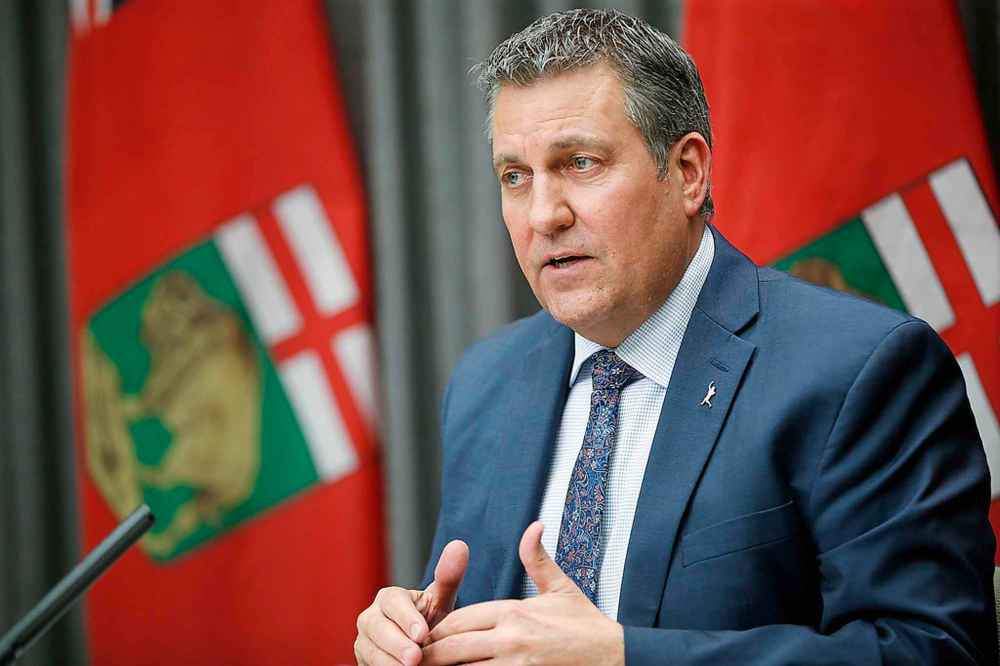
“Manitoba is proposing to modernize our education system to ensure the diversity of our school communities are reflected at all levels — within schools and within the administrative structures that will support the 15 regions,” he said in a prepared statement, which suggested the current system does a “poor job” of reflecting diversity while a high number of trustees run unchallenged in elections.
Only five of 54 trustees elected to Winnipeg’s six boards in 2018 identified as either Indigenous or as a visible minority.
The Newcomer Education Coalition, Winnipeg Indigenous Executive Circle and Community Education Development Association have been lobbying boards to make representation a priority in recent months.
Following the release of their education equity reports, both Winnipeg and Seven Oaks trustees elected people of colour to lead their boards.
Greg McFarlane, who became the first Black trustee to chair a school board earlier this school year, said Seven Oaks is concerned its uniqueness as a progressive division that has long prioritized Indigenous education won’t be factored into decision-making after the reforms.
“That to me is the most frightening aspect of the whole thing. If this government is bent on control… They’re going to hire directors, people that are of the same mind,” McFarlane said.
maggie.macintosh@freepress.mb.ca
Twitter: @macintoshmaggie

Maggie Macintosh reports on education for the Winnipeg Free Press. Funding for the Free Press education reporter comes from the Government of Canada through the Local Journalism Initiative.
Our newsroom depends on a growing audience of readers to power our journalism. If you are not a paid reader, please consider becoming a subscriber.
Our newsroom depends on its audience of readers to power our journalism. Thank you for your support.






